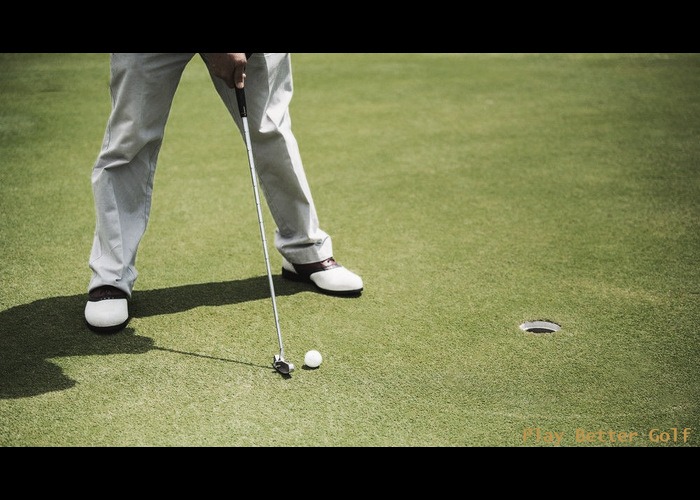
Even for novices, golf can be a rewarding and hard game. It’s a strategy, skill, and patience game, and it might be intimidating to start. Don’t be put off by it! With appropriate guidance and repetition,
In no time, you’ll be hitting the links like a pro. Now let’s get started with the top 16 beginning golf tips:
Selecting Appropriate Equipment:
In golf, having the proper equipment from the outset is essential. It’s OK for novices to possess a whole collection of elite clubs. Rather, concentrate on a basic set that typically consists of a putter, a wedge, irons, a driver, and a pair of woods. Because of their more forgiving design, these clubs let you to learn the game without feeling overwhelmed. Beginners should choose lightweight, flexible shafts because they provide more control and promote a smoother swing. Don’t forget to buy a decent pair of golf balls and some cozy shoes as well.
Developing Your Grip:
In golf, grip is essential. It’s your only link to the club, and it has a big impact on how you swing and how far the ball travels. The interlocking grip, the overlapping grip, and the baseball grip are the three primary varieties of grips. Try out each to see which one feels most comfortable. To prevent wrist and arm strain, make sure your grasp is both solid and relaxing. Slashes, hooks, and other unintentional shots may be avoided with the right grip.
The significance of posture and stance
The basis for your swing is established by your posture. For a sturdy foundation, place your feet shoulder-width apart at the beginning. To maintain flexibility and a straight yet flexible back, slightly bend your knees. To facilitate fluid body rotation throughout the swing, your posture should feel balanced and comfortable. It’s also critical to keep your head and gaze down the whole swing to improve ball contact.
Getting the Hang of Swing:
It’s crucial to grasp the fundamental swing before trying more difficult strokes. Strive for a fluid, synchronized movement. To gain a feel for the action, begin with little half-swings and work your way up to a full swing. Make sure that everything you do is consistent and smooth. Recall that timing and technique matter more than strength.
Maintaining Eye Contact:
When playing, you must maintain a level head. If you raise it too quickly, your timing and balance may be incorrect, which might lead to a foul play. You will greatly enhance your abilities if you practice keeping your head still and observing the ball until you hit it correctly. It will seem instinctive with enough practice.
Recognizing Golf Etiquette and Rules:
Golf is a highly traditional game with its own set of rules and manners. Understanding this enhances your game and demonstrates consideration for other players and the course. Learn the fundamentals, such as staying in step with the group ahead of you and refraining from chatting during another player’s swing. Learn the lingo used in golf, and remember to always be kind to other players.
The Benefits of Learning:
A few lessons, even, can have a big impact. An expert may provide tailored advice and assist in addressing any shortcomings in your method. They can also offer advice based on your unique advantages and disadvantages. Spend a little money on a few lessons to advance your abilities and self-assurance on the course.
The Value of Consistent Practice
To get better at golf, you must practice. You may improve your swing and spend more time on the putting green by going to the driving range frequently. This is beneficial for building a strong short game. Regular practice contributes to confidence and muscle memory development. Even if you just practice a few times a week, make time for it.
Selecting the Appropriate Golf Ball:
Since I’m just getting started, I choose balls that are difficult to guide yet go a long far. Without a doubt, these balls are less expensive. For someone like myself who is still learning how to swing, they are fantastic. Perfectly directing the ball is not something that worries me too much. I experiment with different balls to find which ones I enjoy the most.
Creating a Pre-Shot Procedure:
Practicing a pre-shot routine before your shot could help you stay composed and psychologically prepared. If you’ve never attempted one before, this could be the perfect solution for you. This may be as simple as taking several deep breaths, aligning yourself with the direction you want the ball to go, and checking your swing a few times. Even under extreme strain, it’s advantageous to relax and lose anxiety. Then continue doing it each time.
Acquiring the Ability to Interpret Green:
Golf’s most important stroke is putting, and reading the green is essential. The putt’s course and speed can be greatly influenced by the slope and grain direction, so pay attention to them. Learn to read greens so you can make appropriate putt adjustments. You’ll get more adept at reading the green and make more putts as time goes on.
Controlling Anticipations:
Golf may be difficult, so it’s important to have reasonable expectations. Recognize that errors are inevitable for even seasoned golfers, and that progress takes time. Keep learning from every practice session and round, and don’t let failures demoralize you. Take pleasure in the learning process and have faith that your skills will advance with time.
Flexibility and Fitness:
Although it may not seem like a strenuous sport, playing golf better may be attributed to physical fitness. In order to strengthen your swing, hit the ball harder, and avoid injury, it would be beneficial if you focused on maintaining your health and flexibility. It makes sense to engage in workouts that enhance your core strength, balance, and flexibility. Gaining fitness is essential to improving your golf game. The great thing about golf is that you can constantly improve. All you need to do is love playing, practice a lot, and form solid habits. If you persevere, you’ll soon see that your playing has improved significantly.
Developing the Correct Mentality:
Playing golf requires both physical skill and mental agility. I need to maintain mental clarity, remember to focus on each step, and be kind to myself when I make mistakes. As a result, it’s critical to reflect on my positive experiences and express gratitude for my successes. In summary, I’ve learned that in order to perform effectively and enjoy myself, I need to maintain composure, make wise decisions, and have faith in my abilities.
Taking Pleasure in the Game:
Shots should be played with enjoyment in mind, since that is the whole point of the sport: to have fun. Every game environment is appreciated given the circumstances, as is the learning process itself. Because of the players’ progress, celebrations take place, highlighting the small pleasures of the game. As one progresses toward proficient golf, practice is maintained and positive attitudes are retained.
Final Words
As you begin to play golf, you could have conflicting emotions. These 16 suggestions can help you improve. Your skills will develop. Every second will be more enjoyable. Playing golf should be seen as a continuous activity. Development happens gradually. Happiness follows development.
Start with the appropriate gear for your skill level and preference. The foundation of your golfing technique is comprised of your grip, posture, and swing mechanics. Accept that learning is a process and that every practice session and game is a step in the right direction. Learn new abilities through classes, and remember how important it is to focus on the mental components of the game, such as remaining calm and having a good outlook.
FAQs
What is the minimum equipment required to begin playing golf?
A driver, a few irons, a wedge, and a putter are the essential golf clubs for a novice. Other necessities include gloves, tees, golf balls, and proper, comfortable clothing. Start with equipment that is suitable for beginners and work your way up to more advanced gear.
How do I pick the appropriate golf clubs?
Seek out beginner-specific clubs, which are typically easier to hit and more forgiving. Take note of the clubhead design and shaft flex. To make sure your clubs fit your swing and body type, it’s usually a good idea to get fitted by a pro.
Is taking golf instruction a must?
Lessons are highly encouraged even if they are not technically obligatory. A few sessions with an expert may help you learn more quickly, provide you a strong foundation, and address harmful habits early on.
How should a golfer hold a golf club?
There are several different grip patterns used, such as baseball, overlapping, and interlocking. When choosing a grip, comfort need to be the first factor. A steady yet flexible hold is necessary. By not taking a grip that is too tight, tension can be avoided. Grip designs might differ significantly in advantages.
To what extent does golf need physical fitness?
In golf, physical fitness is very important. You can enhance your swing, add power, and lower your chance of injury with good core strength, flexibility, and general wellbeing. Exercise on a regular basis is useful, especially training tailored to golf.
How can I get better at swinging?
Learn the fundamentals first: a balanced posture, a decent stance, and a correct grip. Practice frequently, preferably with a coach’s assistance or with the use of educational materials. Aim to keep your swing action steady and fluid.
What are some accepted guidelines for golf etiquette?
Talking during another player’s swing, playing at a fast tempo, maintaining the course (fixing divots, for example), and being aware of other players’ lines of play are all important guidelines.
How can I determine which golf club is best for a certain shot?
I consider both my required swing length and distance from the ball while deciding which club to use. But when I need to be precise or don’t need to hit the ball very far, I use my irons and wedges. For striking the ball extremely far, though, I utilize large clubs like drivers. It all comes down to selecting the correct one.
Does a pre-shot ritual have to be followed?
Pre-shot rituals aid in mental and consistent preparation. It might involve mentally picturing the shot, practicing swings, and lining your shot. Creating a method helps enhance performance and concentration.
How can I get better at putting?
Putting requires a lot of practice. Pay attention to your grip, stroke, and posture. Develop your ability to read greens by being aware of their speeds and slopes. For distance management, consistency in your putting stroke is essential.




